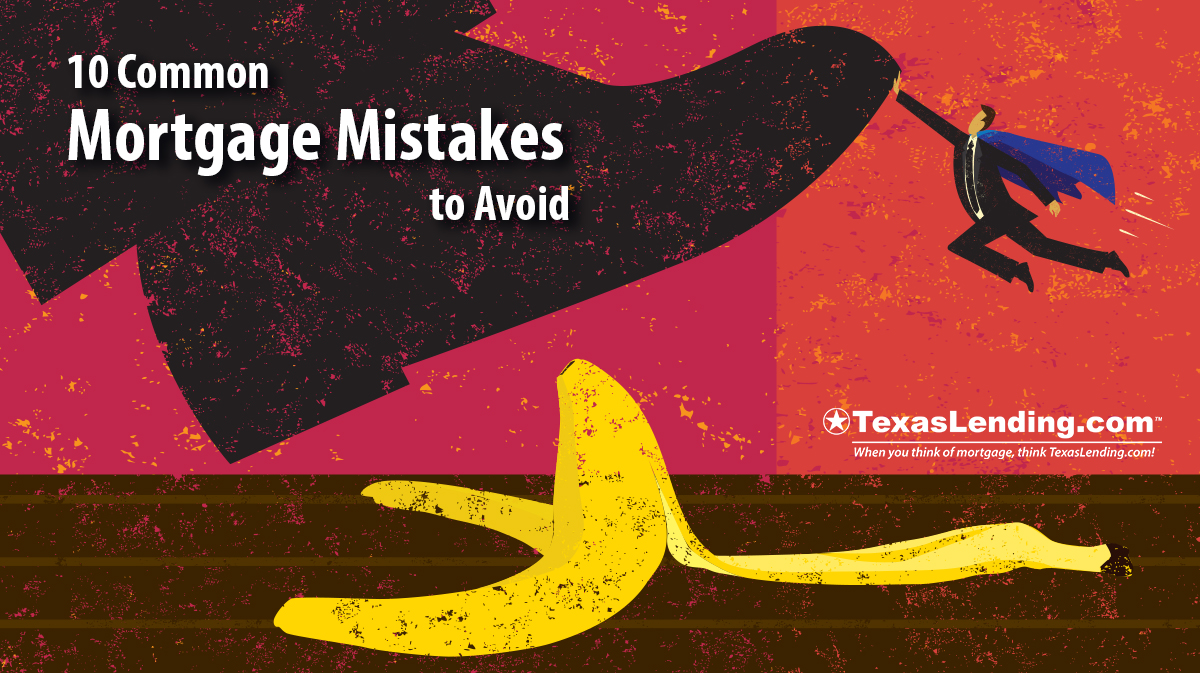Buying a home is a significant financial decision that requires careful consideration and planning. However, even after putting in so much effort, many still make costly mistakes during the mortgage process, resulting in financial problems, frustration, and disappointment. In this post, we'll take a look at some of the most common mortgage mistakes that you should avoid at all costs.
Not Shopping Around for Mortgage Rates and Terms

When it comes to getting a mortgage, many people go with the first lender they come across. However, failing to shop around for different mortgage rates and terms can cost you thousands of dollars in interest over the course of your loan. Take time to research different lenders and compare their rates and terms before making a decision.
Not Checking Your Credit Score

Before applying for a mortgage, it's important to check your credit score, as this can have a significant impact on the interest rate you're offered and your overall loan eligibility. A high credit score means you'll be offered lower interest rates and more options when it comes to mortgage lenders.
Not Understanding Your Budget and Affordability

It's important to have a clear understanding of your budget and affordability before you start looking for a home. Don't make the mistake of assuming you can afford a certain amount based on a lender's pre-approval, as this may not take into account your other expenses, such as utilities, taxes, and maintenance costs.
Not Having a Pre-Approval Letter

Getting pre-approved for a mortgage before house hunting is an essential step in the home-buying process. This not only gives you an idea of how much you can afford, but it also shows sellers that you're serious about buying their property. Without a pre-approval letter, your offer may not be accepted in a competitive market.
Taking on Too Much Debt
Another common mistake is taking on too much debt before or during the mortgage process. This includes taking out new loans, opening new credit accounts, or making large purchases. Doing so can impact your credit score and overall affordability, potentially leading to a rejected loan application or higher interest rates.
Skipping an Inspection
It's crucial to get a home inspection before purchasing it. Skipping this step may result in unexpected repair costs that can put a significant dent in your finances. An inspection can uncover any issues or damage that may not be visible on the surface and provide peace of mind.
Not Understanding the Mortgage Terms and Conditions
A mortgage agreement is a complex legal document that contains various terms and conditions. Failing to read and understand the terms of the mortgage can lead to misunderstandings, confusion, and even legal trouble. Always read the fine print and ask questions if you're unsure.
Not Saving Enough for a Down Payment
Many lenders require a minimum down payment of 20 % of the home's purchase price. Failing to save enough for a down payment can limit your options, increase your monthly payments and potentially result in a higher interest rate. Start saving as early as possible to ensure you have enough money for a down payment.
Not Factoring in Closing Costs
Closing costs are fees incurred during the home-buying process that must be paid before the sale is finalized. These fees can include legal fees, appraisal fees, and title insurance, among others. Not factoring in these costs can result in financial strain and put unnecessary stress on your finances.
Not Communicating with Your Lender
One of the most important aspects of the mortgage process is open and clear communication with your lender. Don't be afraid to ask questions, share your concerns, and provide updates as needed. This will help ensure a smooth and stress-free home-buying experience.
By avoiding these common mortgage mistakes and taking the time to thoroughly research and plan your mortgage process, you'll be able to enjoy the many benefits of homeownership without any financial stress. Remember, the home-buying process is a significant investment, and a careful approach is essential to make the most of it.
